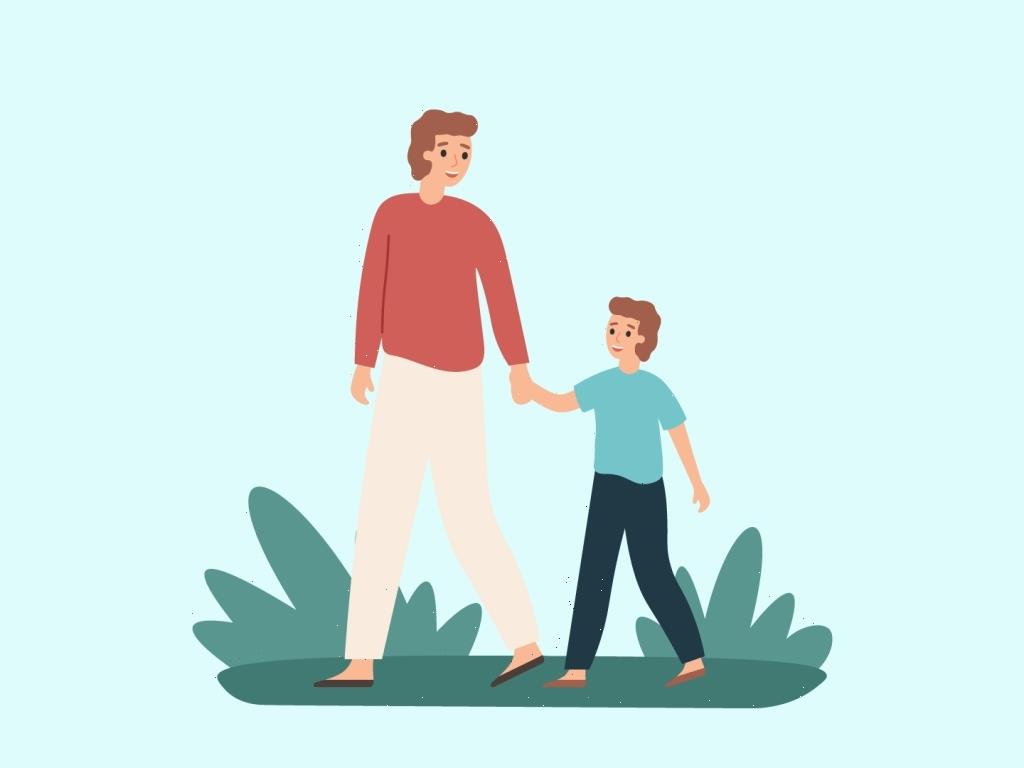“Hey kiddo,” I call to my 8-year-old on the merry-go-round, “don’t spin too fast or you’ll throw up!”
Trying to save my son from barfing up his pizza lunch, I delicately remind him in front of the entire playground that spinny rides make him vomit. Instead of thanking me for looking out for his delicate tummy, he gives me an awkward smile and starts running — away from me. What is happening? I thought I was saving my son the embarrassment of puking in public, but it seems I’m the embarrassment. Is there a way to explain to my kiddo that I’m not overprotective, I’m just helpful?
My protective mom instincts were born with my son. They grew out of the strong connection I felt the first time I held him. When his tiny fingers wrapped around mine, my heart was no longer my own and I knew I had to keep my little one safe at all costs. I was ready to protect him from air bubbles in his bottles and defend him from monsters that hide under beds. Not one to shirk my responsibilities, I took this task more seriously than a threenager telling their parents what to do.
To ensure my newborn’s safety, I invested in little sleep and large anti-colic bottles. As he grew, I watched carefully to see that his baby food was sufficiently pulverized and that he didn’t eat his crayons as appetizers. There were many days my brain was so exhausted from assessing all the pitfalls and perils to my kid’s safety, that I couldn’t have named even one Paw Patrol character. I imagined my ol’ middle-school Safety Patrol buddies totally proud of my efforts, because I can honestly say my son never rode our Roomba down the sidewalk once.
I have to admit, as my kid grew older, I was relieved that I could slack off a bit. When he became more aware of his surroundings and knew stairs were for walking down and not for sliding down, I felt my protective urgency relax somewhat. I followed this new intuition and downshifted into what I thought was a more “helpful” space.
“Hey sweetheart, you might want to slow down in those shoes. They’re a little slippery on this wet grass,” I said to my then 4-year-old.
My kid took my advice to heart and slowed down. With a careful saunter and a big smile, I watched him head back over in my direction. He threw his arms around my legs and shouted into my kneecaps, “You’re the best mom ever!” Hugging him back, I thanked him for his thoughtfulness and felt full of happy love from my little guy. With that big stamp of approval, I thought: Wow, I am the best mom ever! But then it all changed so quickly.
Where my son once welcomed my concern and care, his acceptance slowly became, well … less accepting. When I’d casually remind him to stop giggling while drinking his milk (because clearly, it might shoot out of his nose), there were no more appreciative hugs. Instead, it’s replaced by an awkward silence or phrases like, “Mom, I’ve got this.” So I’m kind of sensing there might be a little hiccup in my “helpful” parenting style?
The thing is, I don’t know how to turn these protective instincts off. I still see danger lurking behind every corner — because my 8-year-old might trip on a dust bunny and we all know how that goes.
I want to keep my son safe whether it be not talking with his mouth full of food or helping with emotional situations. But I’m wondering if there comes a time when all my “helpfulness” isn’t helpful. My grade-schooler may be exactly right when he lets me know he’s capable of handling the rate at which he drinks milk or spins on the playground. The truth of the matter is, it feels more than strange to baby-step it back. Not only do I worry about my kid’s safety without my warnings, but stepping back from stepping in triggers big feelings of loss within me.
When my son was born, he was so vulnerable and fragile. He looked to me to keep him safe, and this built our trust as he grew; it strengthened our connection. Now, I get that he’s looking for ways to trust himself without me. Backing off and letting go is way harder than I thought it would be. The struggle between deciding to step in or take a backseat is real.
“Mom, I’m gonna run,” my kid shouts gleefully from the other side of the park.
Yep, the grass is wet and super slippery and all I want to do is call out after him to be mindful of his shoes so he doesn’t trip. But I don’t — because if he falls, I’ll be there to pick him up again. It’s not at all easy for this “helpful” mama to let go, but it would be best for my son to take a little step back and allow him space to make his own decisions. This way he can learn to trust himself — and that’s a positive trait I definitely want to protect.
Source: Read Full Article
